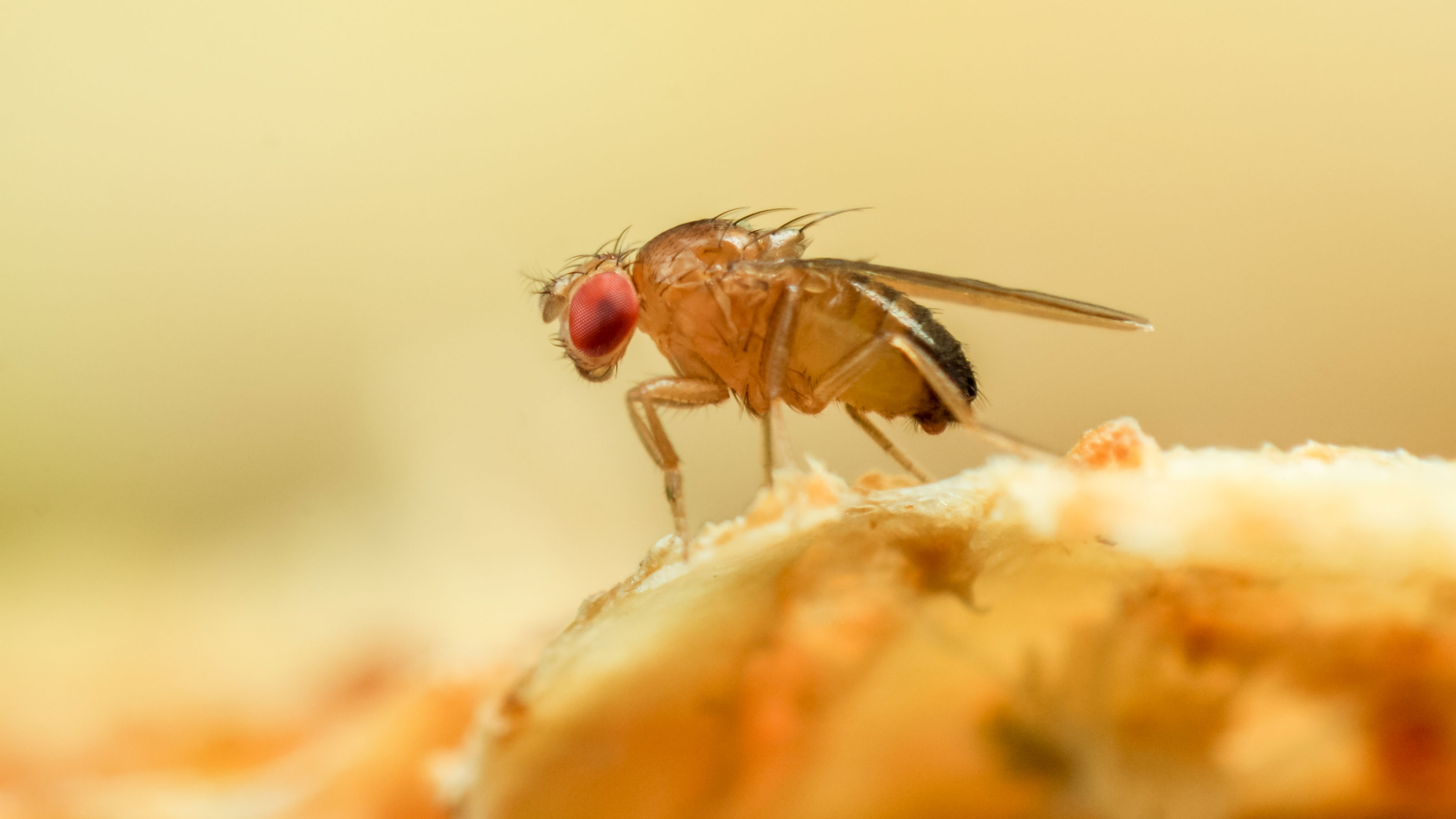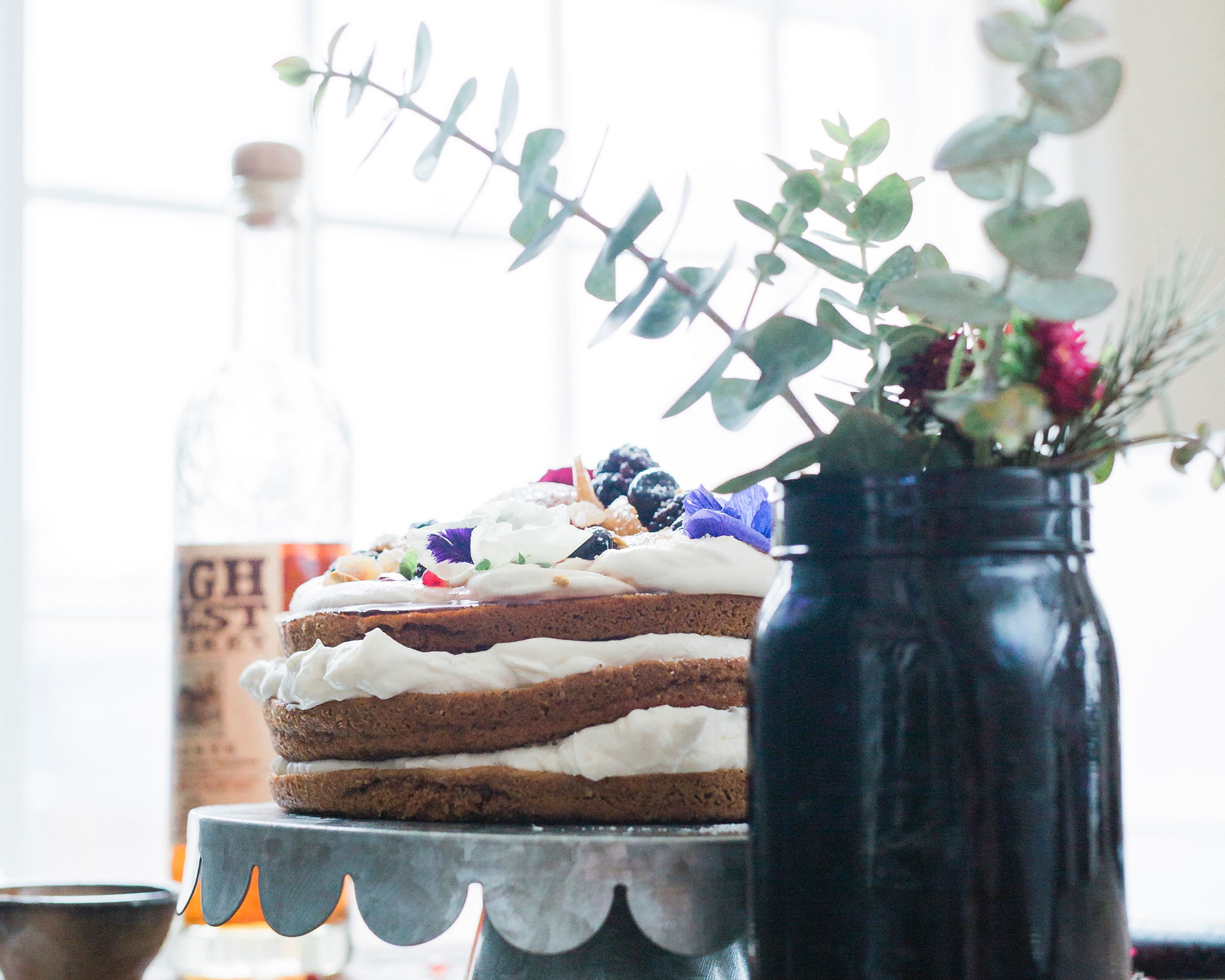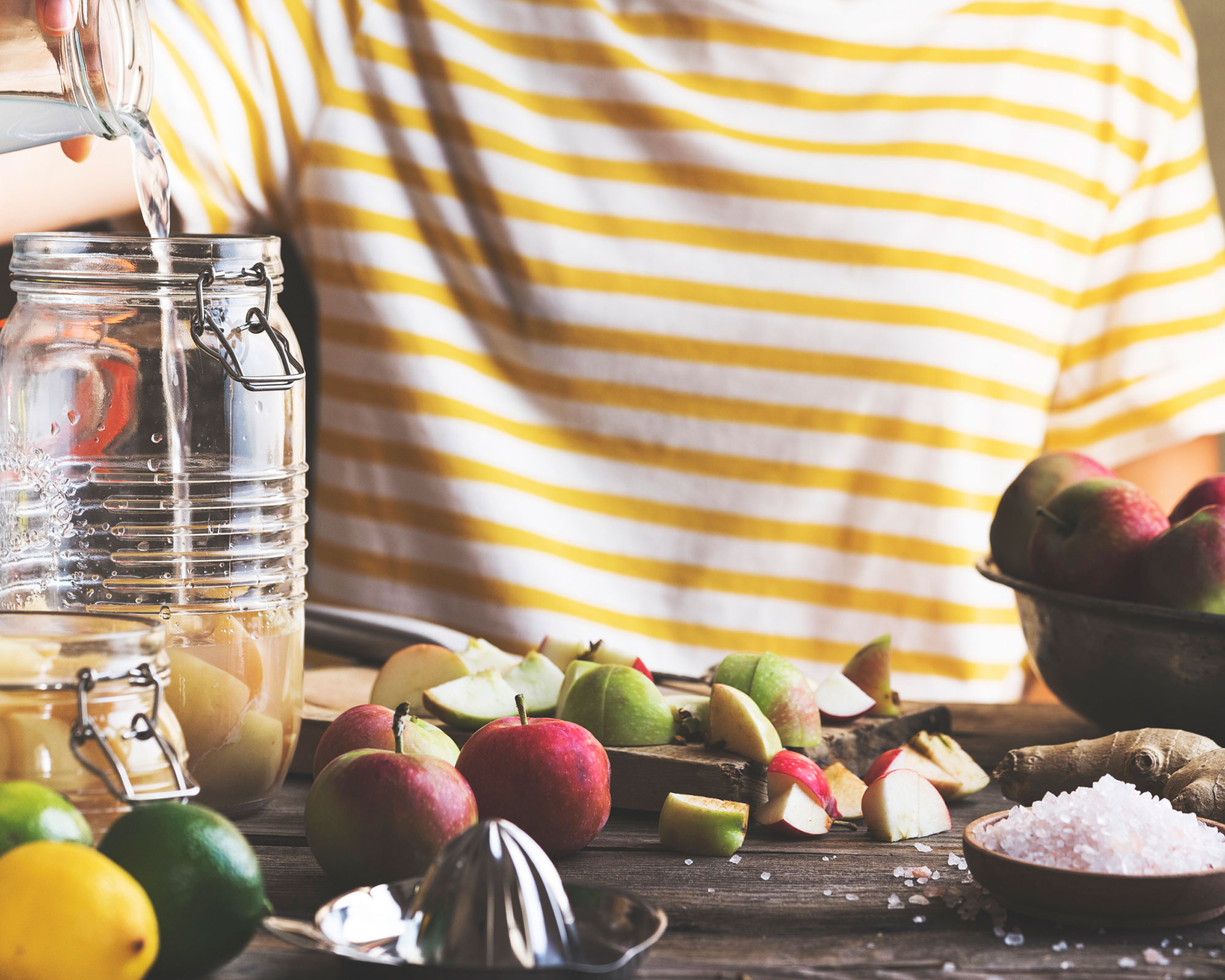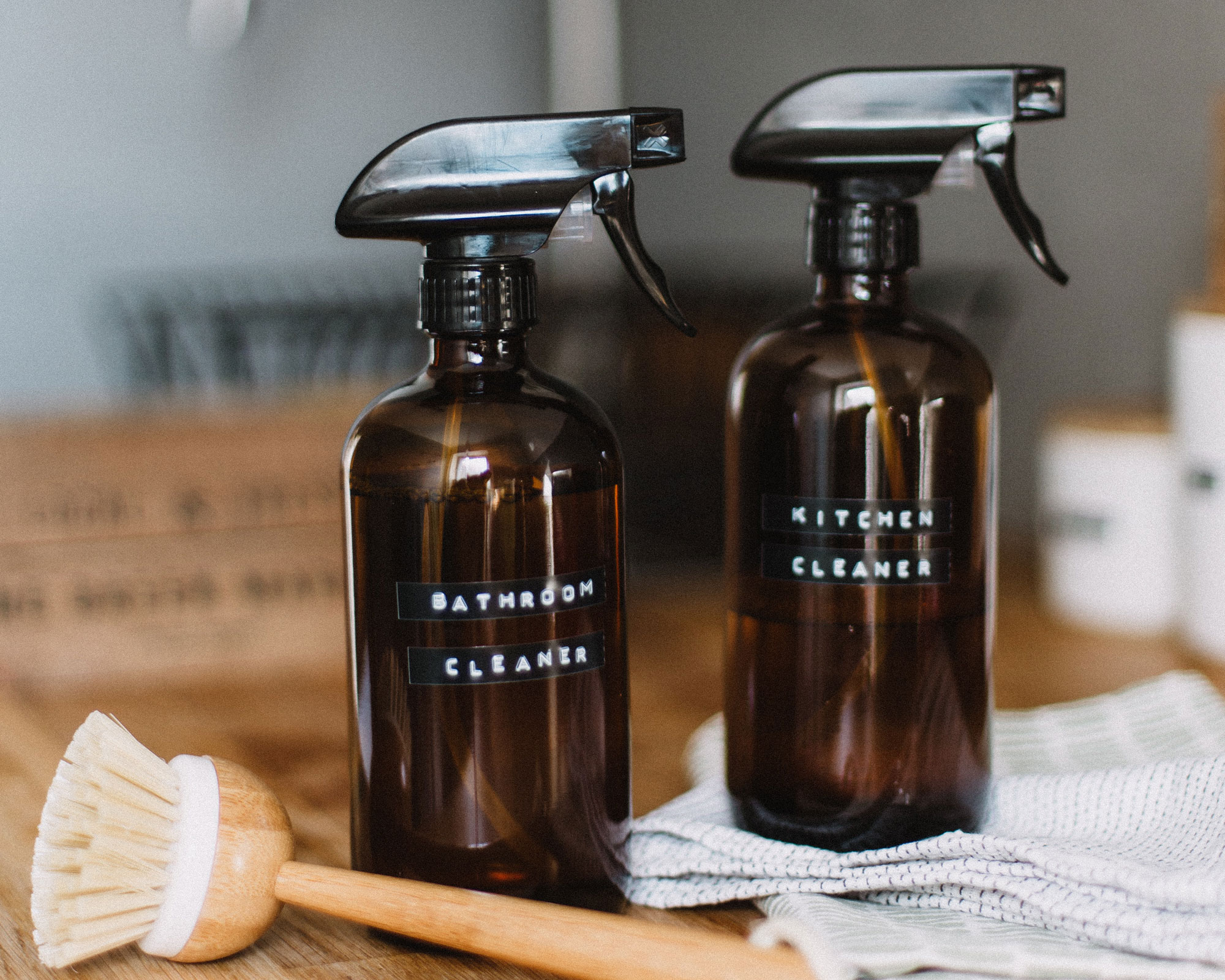How to get rid of fruit flies – the best ways to banish these pests
Wondering how to get rid of fruit flies? Discover the traps you can make at home – plus how to stop the problem at source

Get small space home decor ideas, celeb inspiration, DIY tips and more, straight to your inbox!
You are now subscribed
Your newsletter sign-up was successful
You’ll want to know how to get rid of fruit flies if you’re being plagued by this tiny but persistent nuisance. These critters often make their presence felt in the kitchen and aside from being annoying, they could contaminate food – a scenario you definitely don’t want.
The small flies or gnats in your kitchen are generally fruit flies. And although particularly prevalent in late summer and fall, they can be a bother year round, so being savvy about how to get rid of fruit flies indoors is crucial.
Here, you’ll discover the top ways to identify bugs in your home, banish fruit flies from your home, plus how to prevent them in the first place and we’ve asked the experts to weigh in with their advice.
How to get rid of fruit flies
We’ve got the lowdown on how to get rid of fruit flies in the house below, while if the houseflies that are often confused with them are bothering you, too, knowing how to get rid of flies is also essential.
Why might fruit flies be in your kitchen? They’re attracted by the produce from your garden and the grocery store. What you need to combat them is likely already to hand, though, and we’ve got the answers to how to eradicate the pests in the long term as well.

Are fruit flies harmful?
The presence of fruit flies can potentially make you ill, even though they're small. Just like other flies, fruit flies transfer bacteria from one surface to another. So, if you've got fruit flies on your fruit bowl, it's likely you've got their bacteria on your tea cups, wine glass and dinner plates, too.
Identifying fruit flies
The first thing to determine is whether your problem is actually fruit flies, or you have a different type of fly in your house.
Are they congregating mainly around your sink? They're drain flies. Around your house plants? These aren't fruit flies either. Fruit flies stay true to their name, although you'll also see them devouring drink spills and, sometimes, even circling around your desserts.
Get small space home decor ideas, celeb inspiration, DIY tips and more, straight to your inbox!
Paul Blackhurst, head of technical academy at Rentokil Pest Control explains: ‘Fruit flies are nuisance pests, however they have the potential to cross contaminate food stuffs with bacteria and pathogens from unsanitary locations they’ve frequented such as rubbish bins, fermenting, decaying vegetation and drains.
‘Also, the tiny fruit fly larvae once hatched feed directly on the over-ripened food, and if you inadvertently consume them they can cause discomfort and diarrhoea.'
We don't think you need any more reason to rid your home of fruit flies...

1. How to get rid of fruit flies with apple cider vinegar
One of the best ways to solve a fruit fly problem is to try to trap them in a container of liquid, in which they'll eventually drown. Fruit flies particularly love the smell of vinegar and wine (it's the smell of fermenting foods they go for after all.) The trick is to make sure that once you've lured them in, they can't get out.
You will need to do the following:
- Use a tall jar with a funnel made from a sheet of paper, or a bottle with a narrow mouth, such as a wine bottle.
- Fill your vessel about one-fifth full with either wine or apple cider vinegar.
- Watch them flock to their demise.
2. Listen to the pest control experts
The answer to the question of how to get rid of fruit flies for good according to Rentokil's David Cross? Exclude; restrict; destruct; monitor.
Let's break that down:
- Exclude: Use tight-fitting mesh screens for doors and windows. There are tons of these flies living outside and they can detect food that's on the turn.
- Restrict: Keep food in the fridge where possible or covered if not.
- Destruct: Use insecticides to kill adults; that will limit the spread.
- Monitor: A bowl of apple cider vinegar left out will attract fruit flies – and help you see how effective your efforts at getting rid of them can be.
3. Make a homemade fruit fly trap
Our personal favourite for effectiveness when the question is how to get rid of fruit flies in the house is a sticky homemade trap with basic kitchen ingredients, and no funnels or bottle needed. Be prepared, though, it is a bit smelly.
Here's how to make your homemade trap:
- Fill your preferred container with a mixture of vinegar, sugar, and overripe fruit (we're talking fruit that's starting to get mushy and smell boozy).
- The more viscous the consistency, the better the trap, so keep adding the sugar until everything is really thick and sticky.
- Another great option is stale beer – use it on its own or add to the mixture. It won't smell pleasant, but the flies will be drawn to the stuff like to a magnet.
These following tips are also worth noting:
- We don't recommend using ripe fruit in a jar on its own, as the flies will most likely get back out – having gorged on the fruit.
- Make sure your ripe fruit hasn't gone moldy and don't bother using other off food, as the flies won't like it (nor will you).

4. Keep your kitchen clean and tidy
We know it's pretty obvious but prevention is better than the cure and that really starts with being savvy about how to clean a kitchen.
When you next don your rubber gloves, make sure you do the following:
- Chuck any fruit that's beginning to decompose, and clean your fruit bowl to get rid of any juicy residue.
- Take out your trash regularly, especially during the summer.
- Scrub all surfaces regularly, getting rid of crumbies and spillages.
5. Eliminate the source of the fruit fly problem
Trapping the adult fruit flies is only half the battle. Eggs may still be lurking on other items in your home which will inevitably lead to more fruit flies to contend with.
With that in mind, the best thing to do is try to find and eliminate food and breeding sources where possible.
Flies also like dark and damp spaces, so ensure your kitchen is well lit and ventilated.
What causes fruit flies in the house?
Fruit flies can be brought into your home on fruit and veggies harvested from your yard, and via unrefrigerated produce from the grocery store. Think tomatoes, squash, grapes, bananas, onions, potatoes and more. Of course, the adults can simply fly into your house, too.
‘They are attracted to the smell of food (particularly sweet, fermenting, spoiling food) in your home and females can lay thousands of eggs which hatch and mature within 48 hours,’ explains Diane Kuthy, a professional gardener, homesteader, and founder of How to Grow Everything. ‘This is why a small fruit fly problem can quickly become a big fruit fly problem seemingly overnight.’
What is the fastest way to get rid of fruit flies?
To get rid of fruit flies fast you need to eliminate the breeding sites around your home. ‘Fruit flies usually hide in dark moist hideaways, such as drains and garbage disposals,’ explains entomologist Nicholas Martin, founder and editor-in-chief at Pest Control Hacks.
‘This being said, the best solution is to pour boiling water or vinegar into the drains with a garbage disposal on.
‘If the flies live in the garbage, you need to take the garbage out more frequently.’
What smells do fruit flies hate?
Fruit flies are drawn to ripened or fermenting fruit and vegetables. ‘Out of all the potential treats in my kitchen for a fruit fly, they unanimously seek out the ferments,’ says Diane Kuthy. ‘Naturally, fruit flies are repelled by the opposite scent profile – namely, strong spicy scents like peppermint, cinnamon, and citronella.’
Silvia Borges of EnviroMom agrees. ‘Essential oils are the biggest enemies of fruit flies or any other pesky flying creatures,’ says ‘Oils from lavender, peppermint, eucalyptus, and lemongrass are all great tools to eradicate them from your house.’
Of course, it’s also important to eliminate the smells that attract fruit flies. ‘Fruit flies are attracted to sweet smelling things and pungent smelling things,’ says Megan Cavanaugh of Done Right Pest Solutions. ‘It’s when fruit becomes overripe that it becomes attractive to them. So a clean kitchen with no harborage or breeding areas, no pungent or sweet smelling things to land on (everything in containers and not out in the open air) is not attractive to fruit flies.’
Why are the fruit flies not going into the vinegar?
If fruit flies aren’t going into the vinegar, make sure it’s apple cider vinegar you’re using in the trap. ‘Plain white vinegar does will not attract fruit flies because it has no fruity scent,’ says Diane Kuthy.
And if it is the right sort of vinegar, don’t use it cold. ‘If your apple cider vinegar was refrigerated prior to use, it may not be pungent enough to attract the flies,’ Diane continues. ‘Remove any other sweet smelling food sources and let the vinegar ferment on the counter for a few hours at room temperature.’
You may need to add dish soap to your trap. ‘The simple trick to make your apple cider vinegar trap effective is to add enough soap to it to lower the surface tension of the liquid and make it harder for insects to escape,’ explains Nicholas Martin. ‘You should also understand that it’s not a quick process and catching all the fruit flies usually takes up to 24 to 48 hours.’
Found the trap has caught some but not all of the fruit flies? ‘The vinegar trap works well for large fruit fly problems as you can get the majority of the fruit flies, but I’ve found that if you only have one or two flying around your home, they aren’t as apt to go into the vinegar,’ says Megan Cavanaugh.
‘This may simply be because they have so much house to explore and are not focused on the one little dish of vinegar. It can be very frustrating, but fruit flies do not live long, so as long as they are not breeding and reproducing in your home, you can wait it out: they will die in a couple of days.’

Jenny is Senior Digital Editor and joined the team in January 2021. She also works on the homes brands' video show, on the Future Homes Network, which is packed full of ideas to help you make the most of your own home and garden. Since getting on the property market with her first apartment and then more recently a house, her passion for interior design and gardening has taken on a new lease of life. Jenny's currently on the lookout for a doer-upper to put her stamp on. She loves collecting and salvaging unique items (much to her other half's despair) but sniffing out stylish home bargains is her one true love. When she has a spare minute, she loves to do a spot of crafting, having studied textiles at Uni – although she hardly gets the chance with a toddler who keeps her permanently on her toes.

